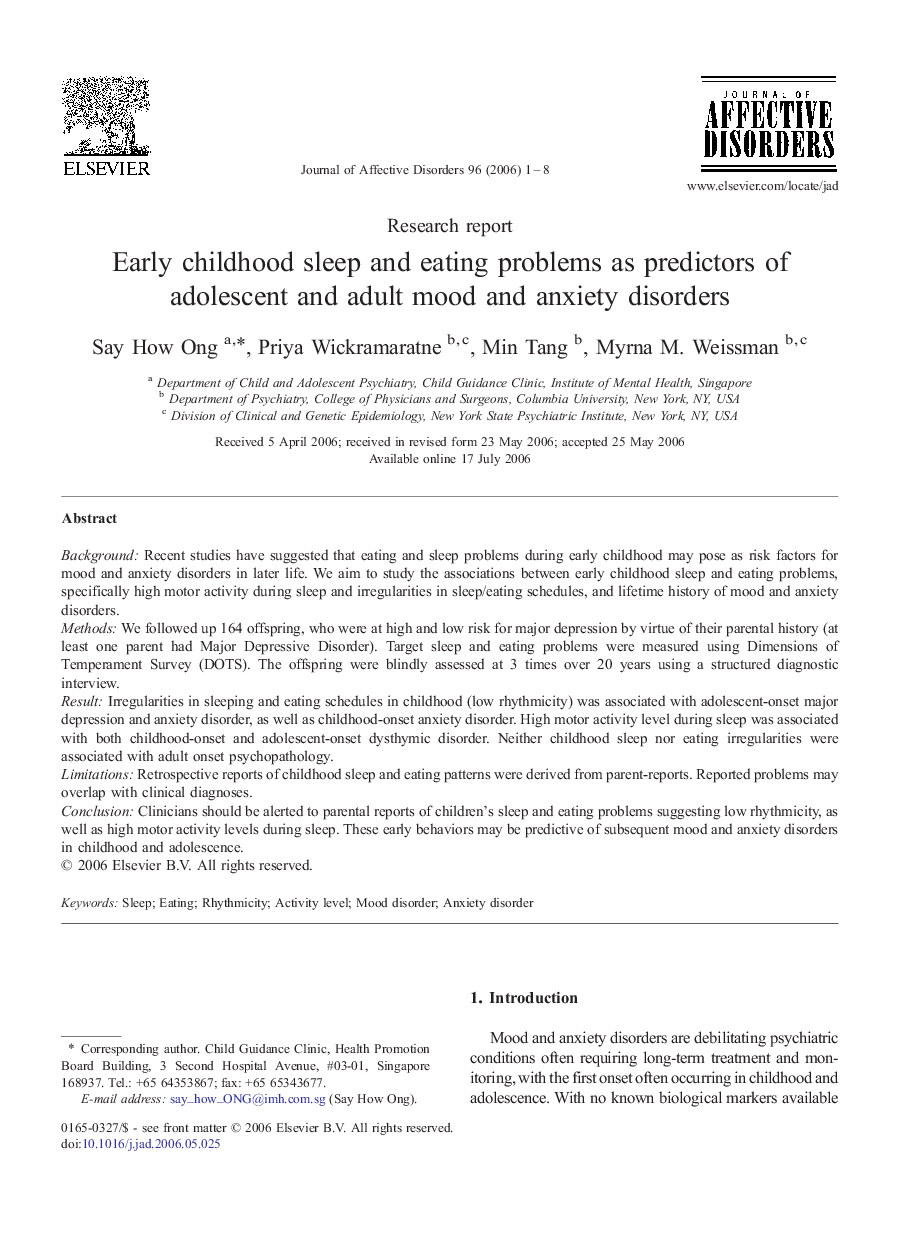| Article ID | Journal | Published Year | Pages | File Type |
|---|---|---|---|---|
| 4187861 | Journal of Affective Disorders | 2006 | 8 Pages |
BackgroundRecent studies have suggested that eating and sleep problems during early childhood may pose as risk factors for mood and anxiety disorders in later life. We aim to study the associations between early childhood sleep and eating problems, specifically high motor activity during sleep and irregularities in sleep/eating schedules, and lifetime history of mood and anxiety disorders.MethodsWe followed up 164 offspring, who were at high and low risk for major depression by virtue of their parental history (at least one parent had Major Depressive Disorder). Target sleep and eating problems were measured using Dimensions of Temperament Survey (DOTS). The offspring were blindly assessed at 3 times over 20 years using a structured diagnostic interview.ResultIrregularities in sleeping and eating schedules in childhood (low rhythmicity) was associated with adolescent-onset major depression and anxiety disorder, as well as childhood-onset anxiety disorder. High motor activity level during sleep was associated with both childhood-onset and adolescent-onset dysthymic disorder. Neither childhood sleep nor eating irregularities were associated with adult onset psychopathology.LimitationsRetrospective reports of childhood sleep and eating patterns were derived from parent-reports. Reported problems may overlap with clinical diagnoses.ConclusionClinicians should be alerted to parental reports of children's sleep and eating problems suggesting low rhythmicity, as well as high motor activity levels during sleep. These early behaviors may be predictive of subsequent mood and anxiety disorders in childhood and adolescence.
